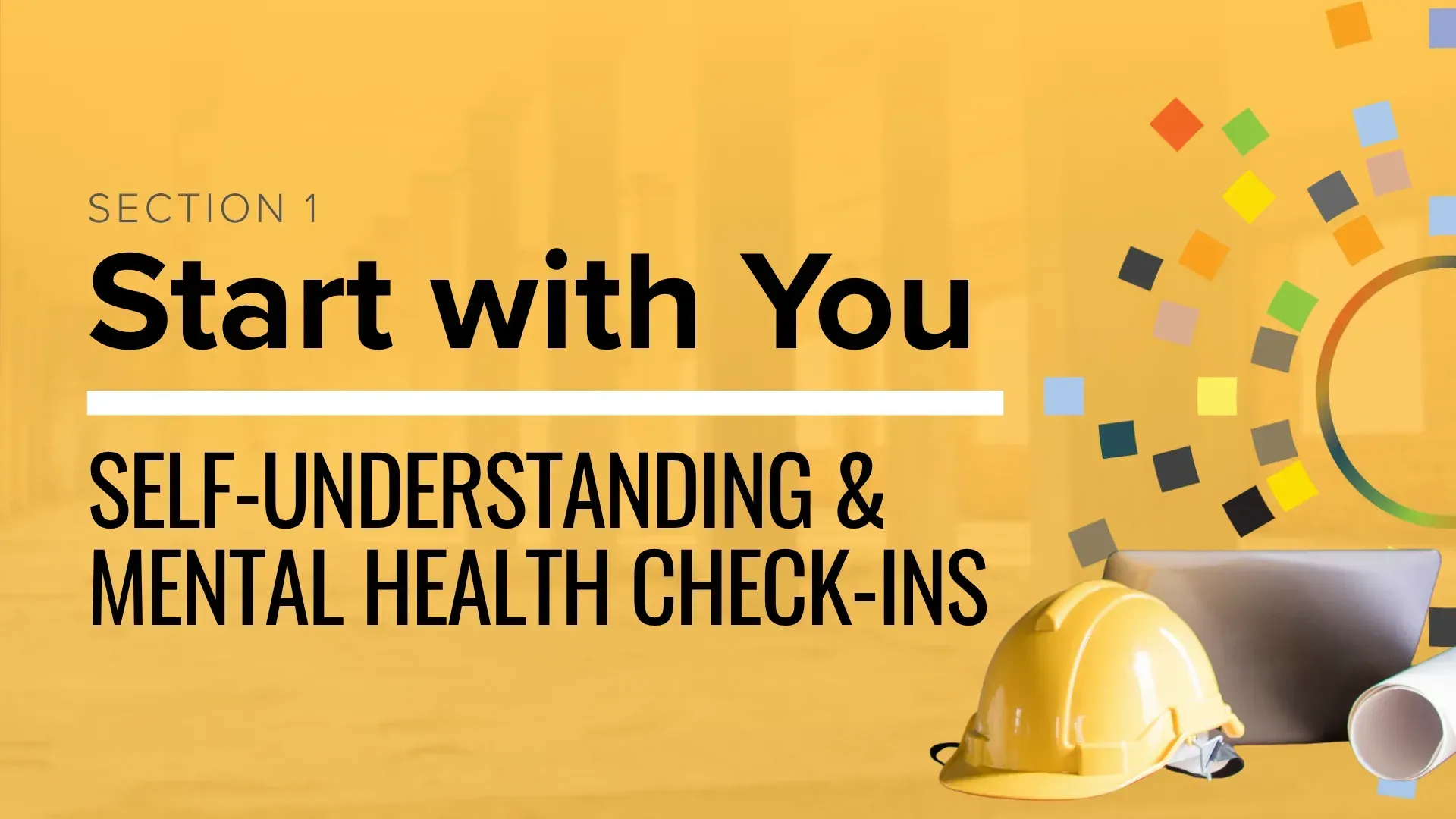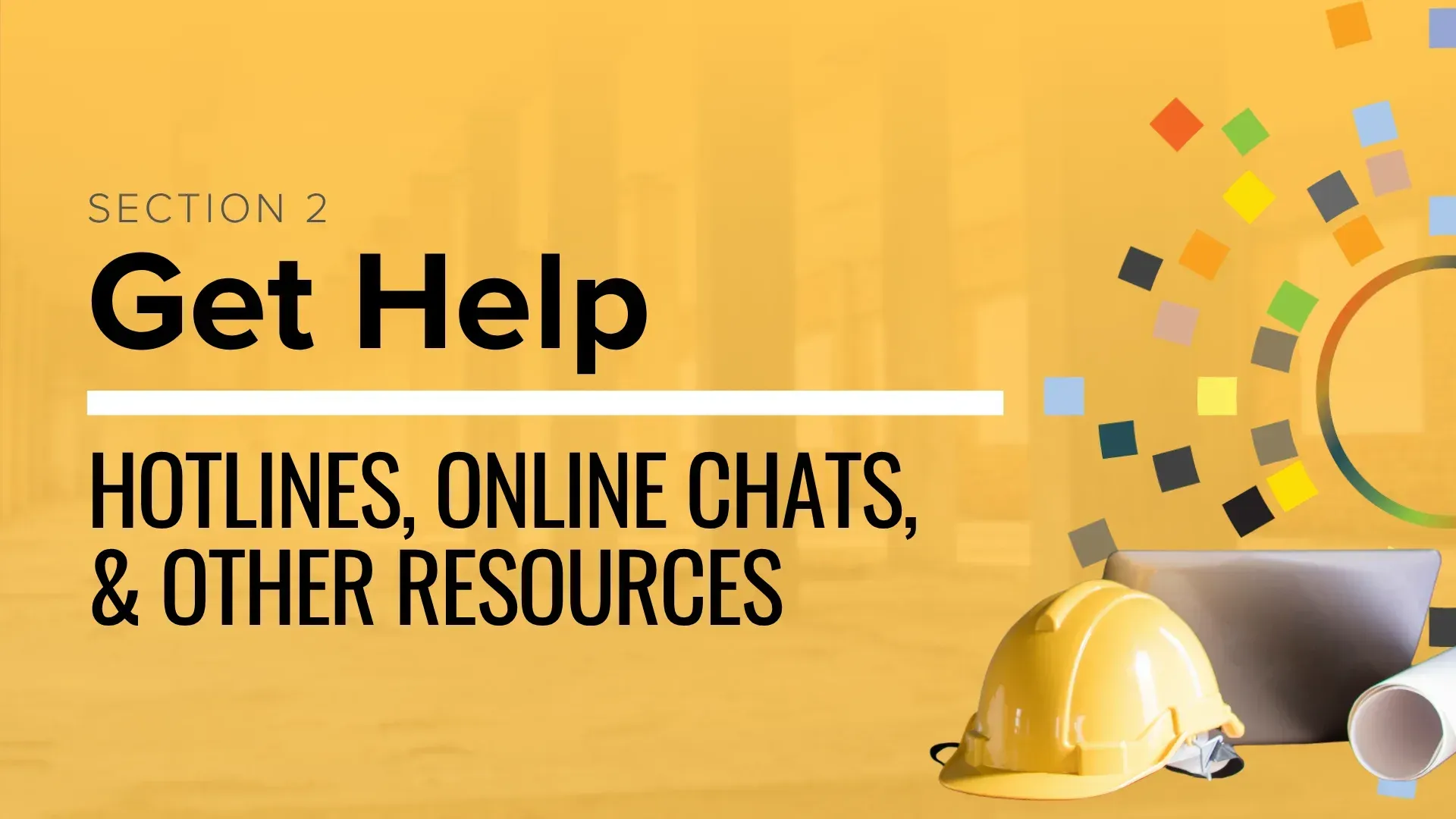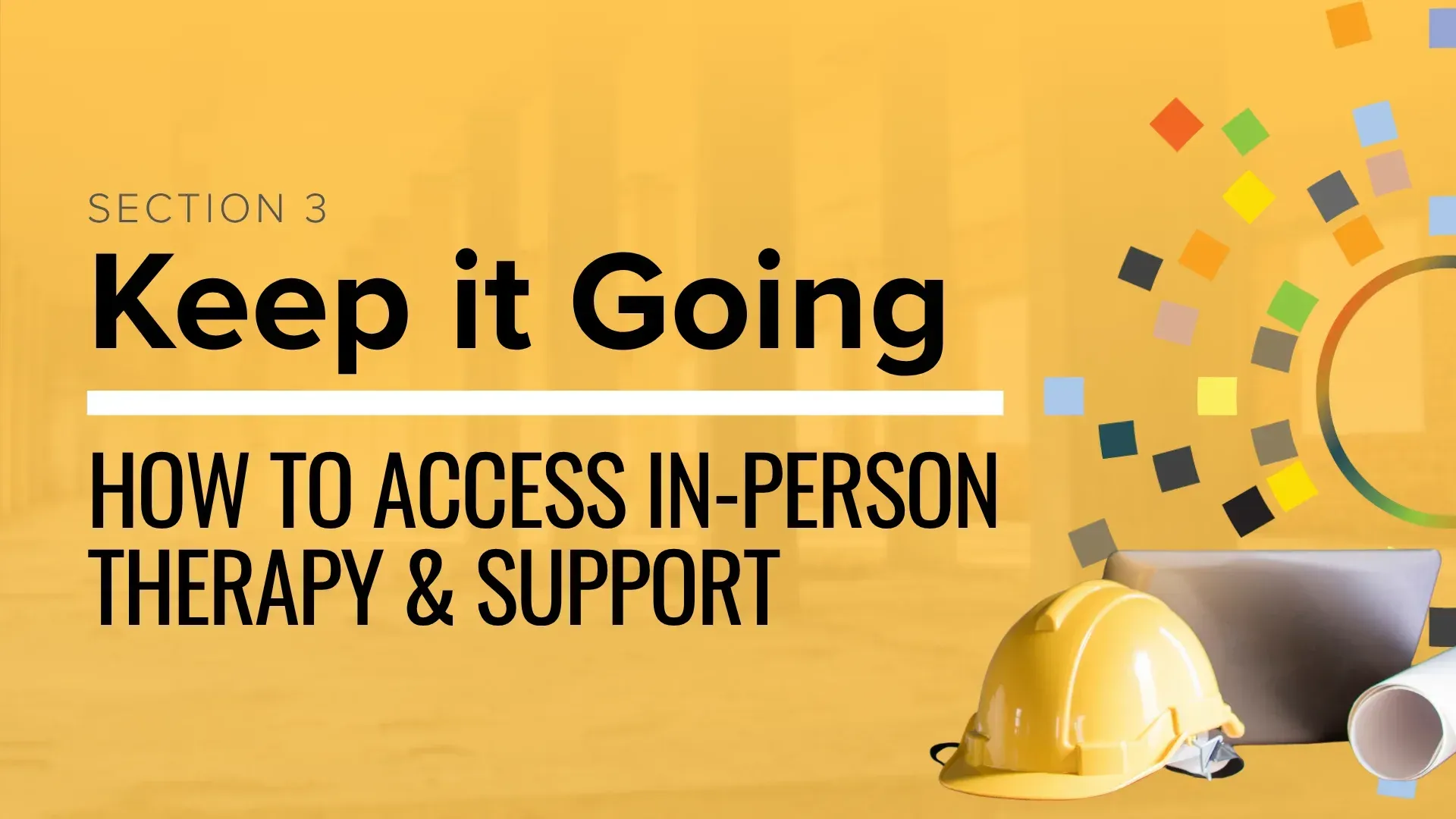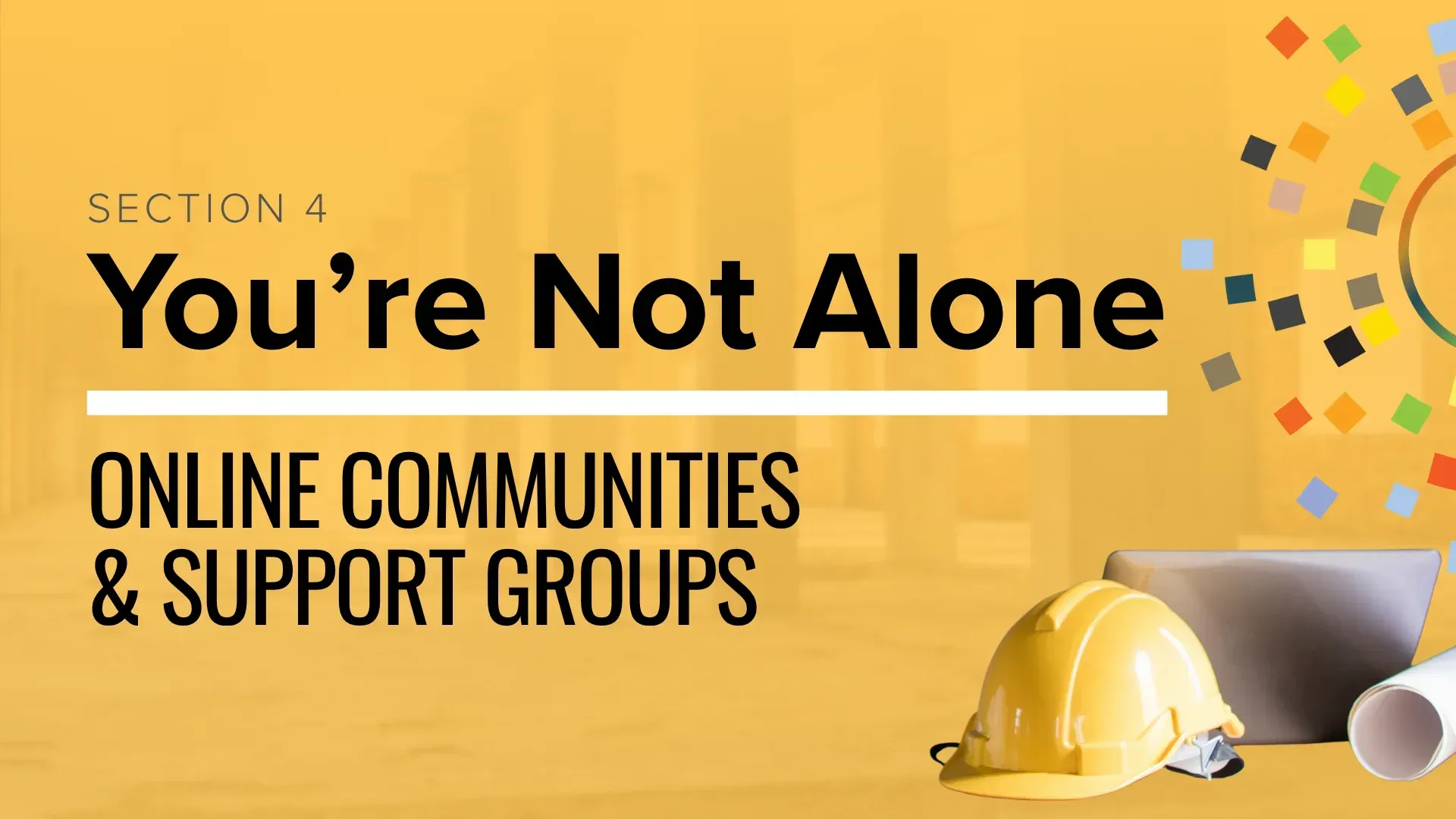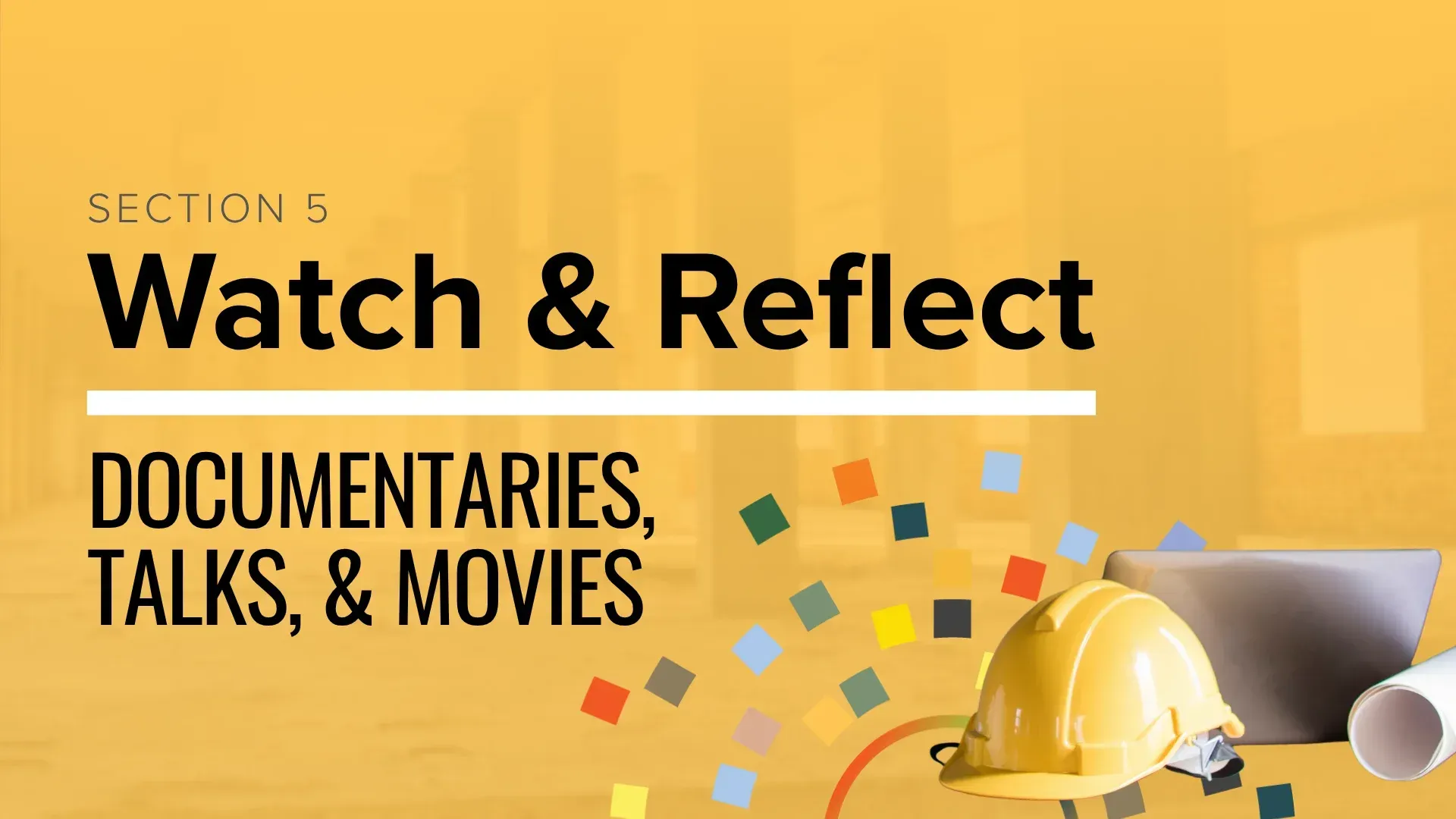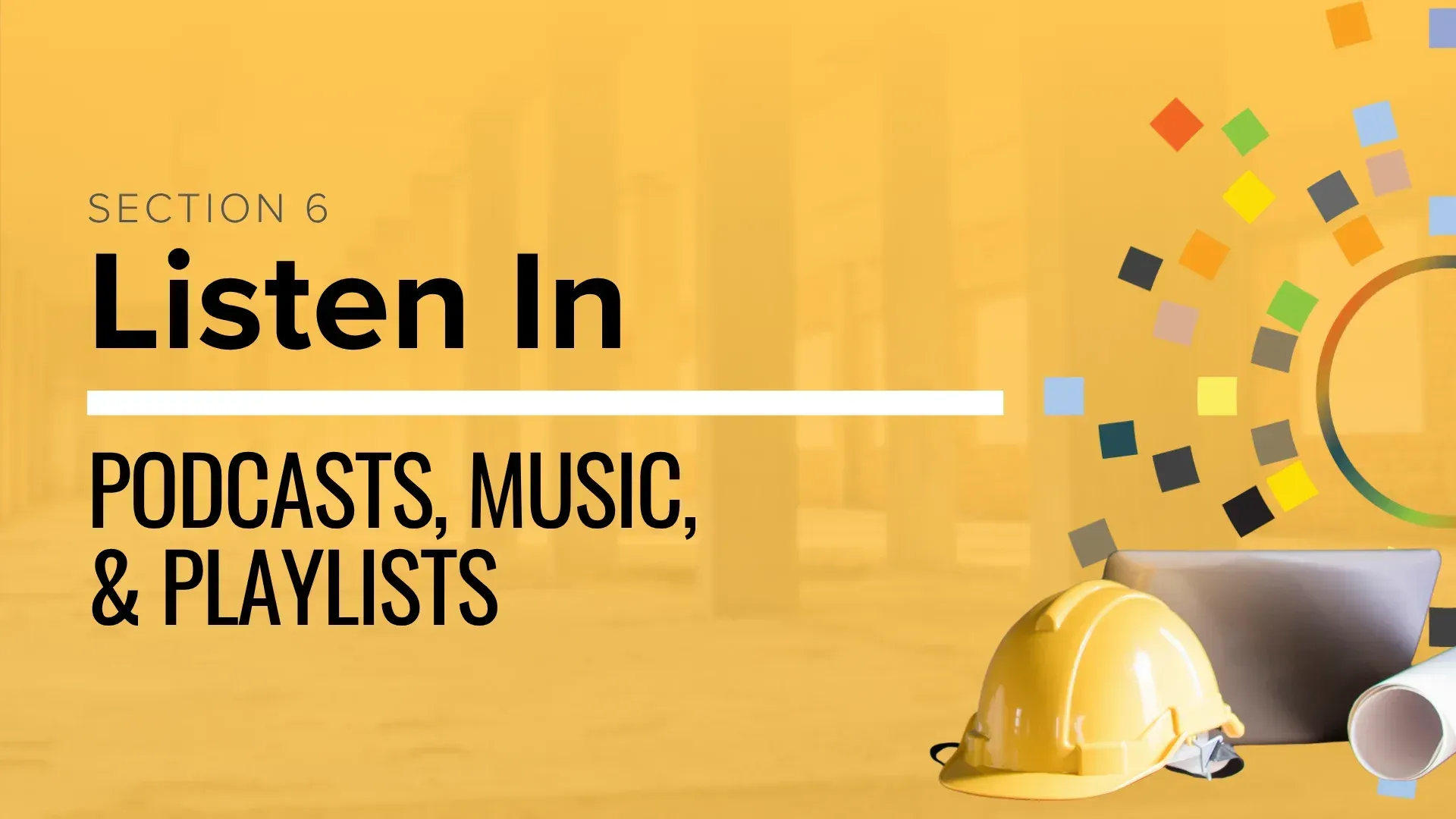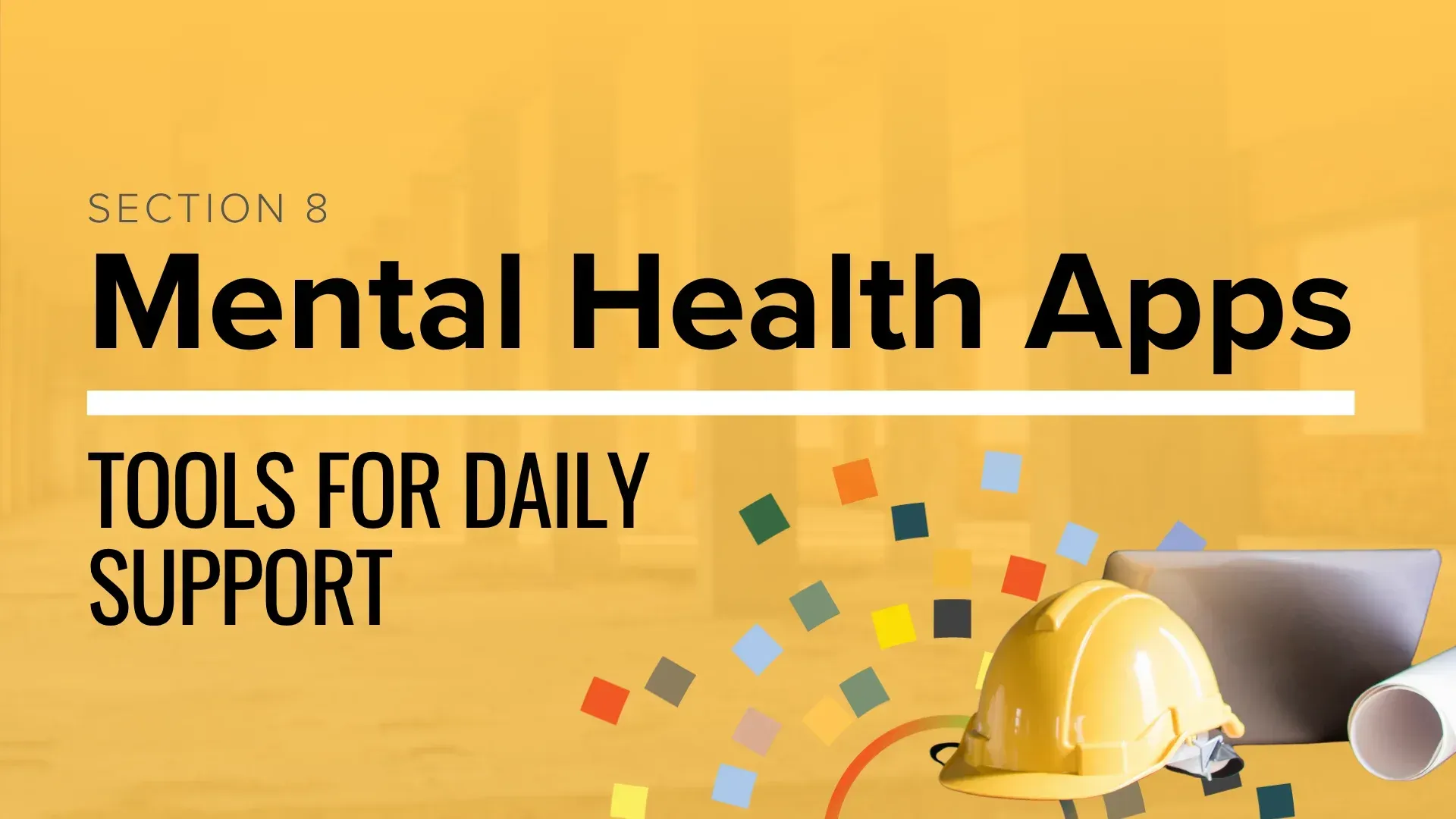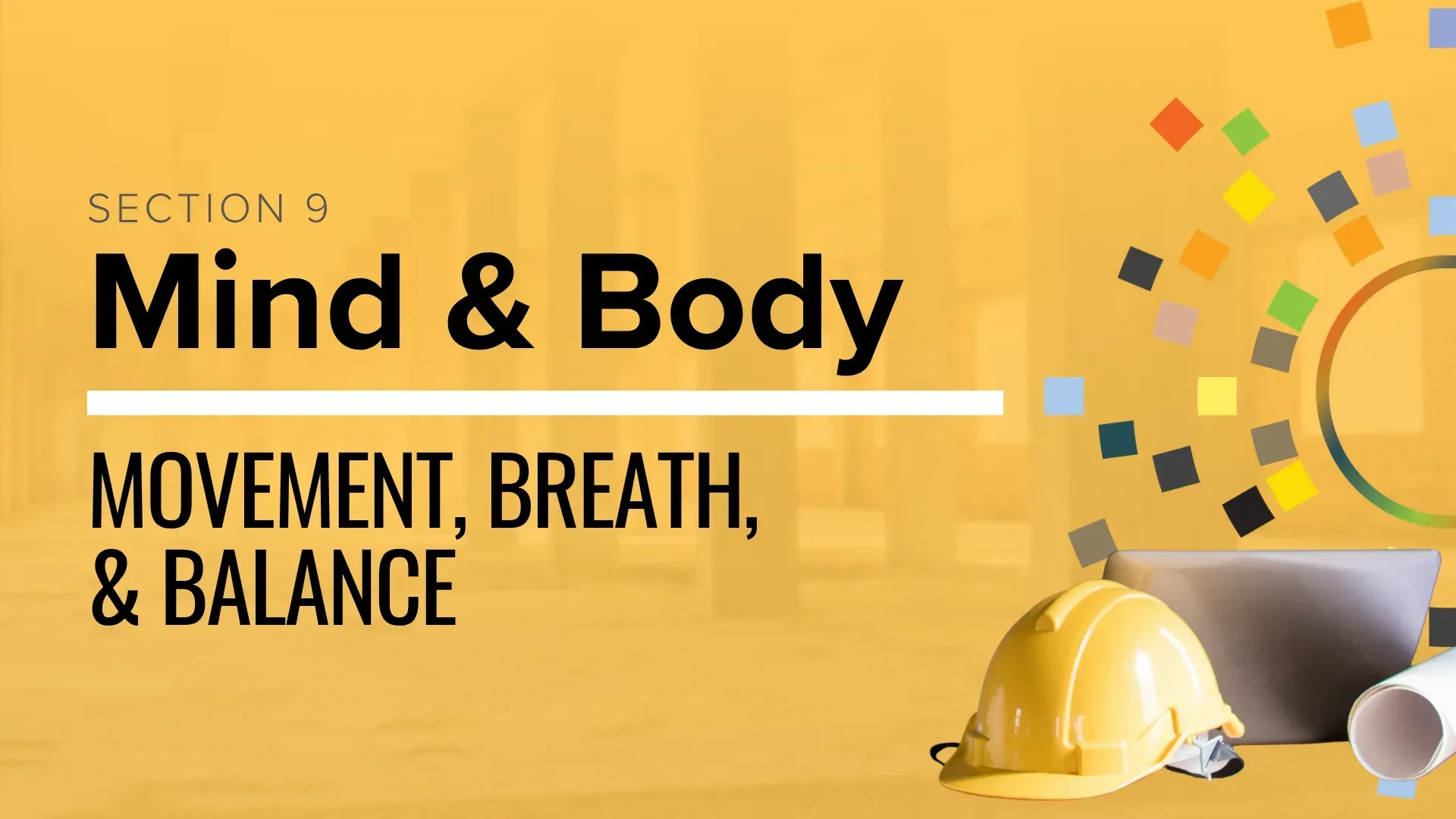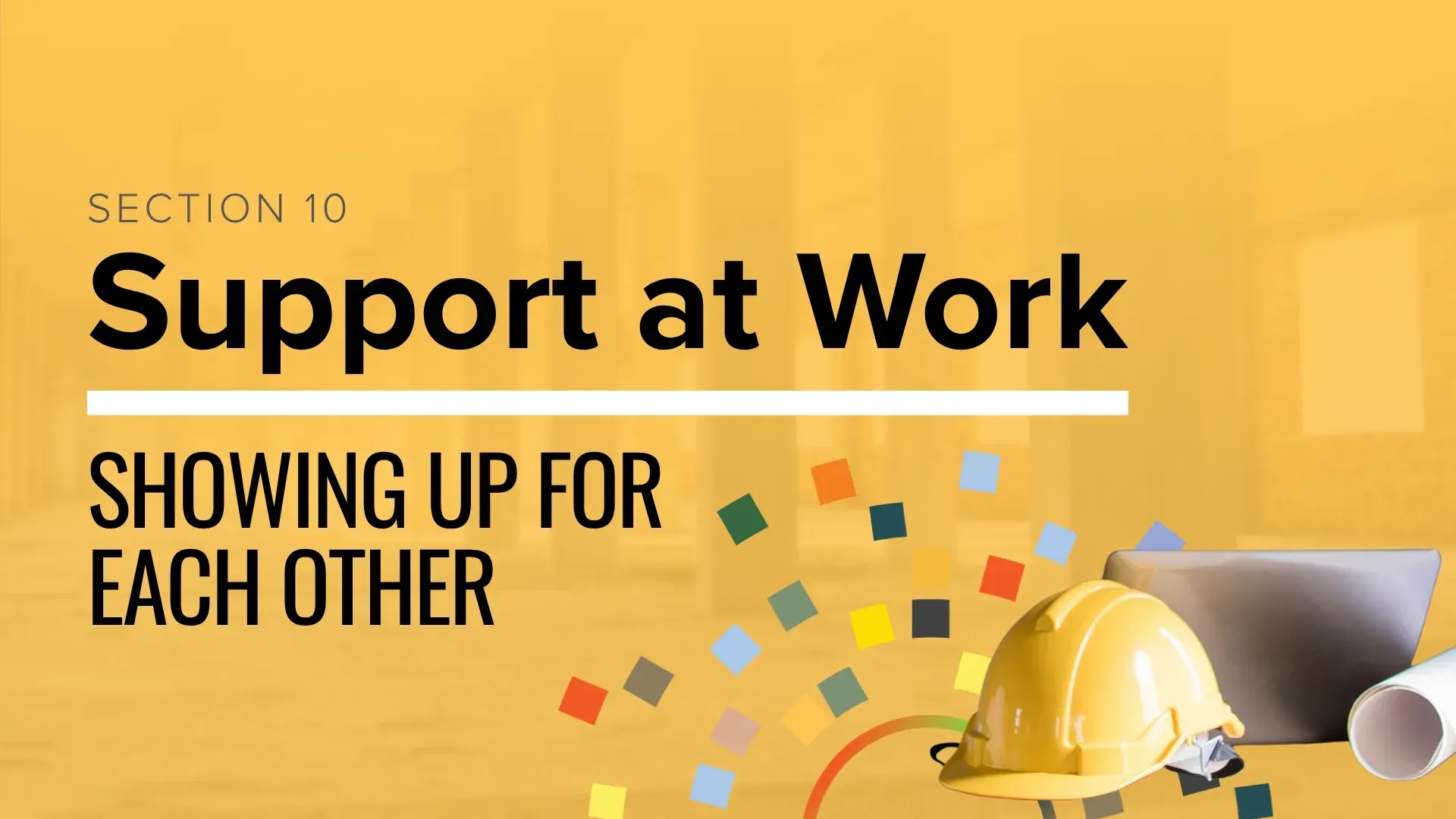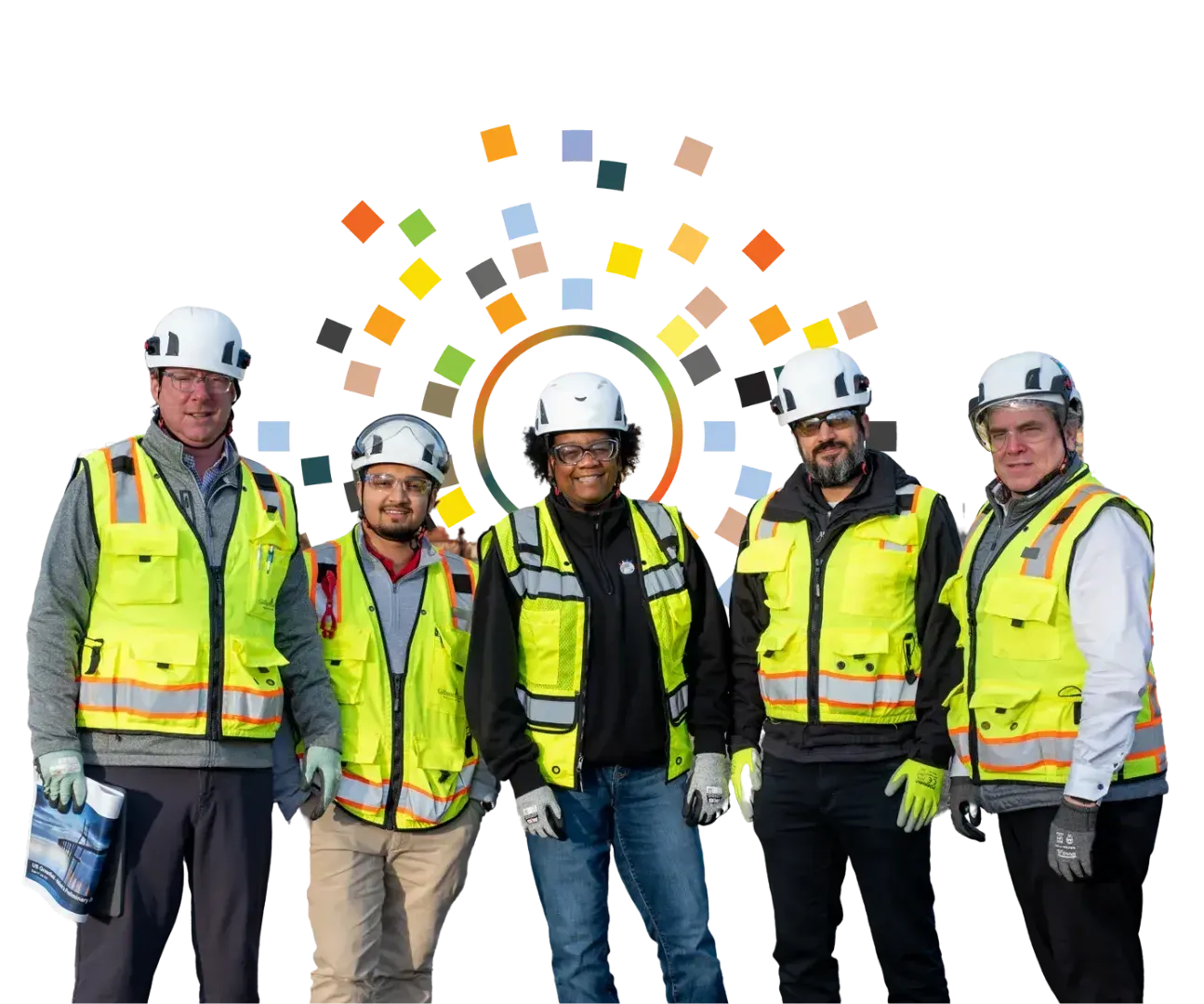Mental Health Resource Directory
Building awareness. Supporting wellness. Transforming industry culture.
Mental health is a vital part of a strong, resilient construction industry. Our Mental Health Resource Directory offers trusted information, tools, and support designed to educate and empower construction professionals to prioritize well-being on the job and beyond.
MENTAL HEALTH IN CONSTRUCTION
Mental health issues, including anxiety, depression, and suicidal thoughts, pose significant risks to worker safety in the construction industry, comparable to physical hazards. In recent years, studies have found the frequency of mental health issues within the industry rising, with figures such as:
83%
of construction workers struggle with moderate to severe mental health issues
5,000+
people working in construction die by suicide each year
3rd
highest industry in terms of stress levels
Additionally, construction workers are more likely to abuse drugs and alcohol, which can impair safety and contribute to mental health issues. For instance, 3.2% of construction workers misuse prescription opioids, compared to 2% in the general population.
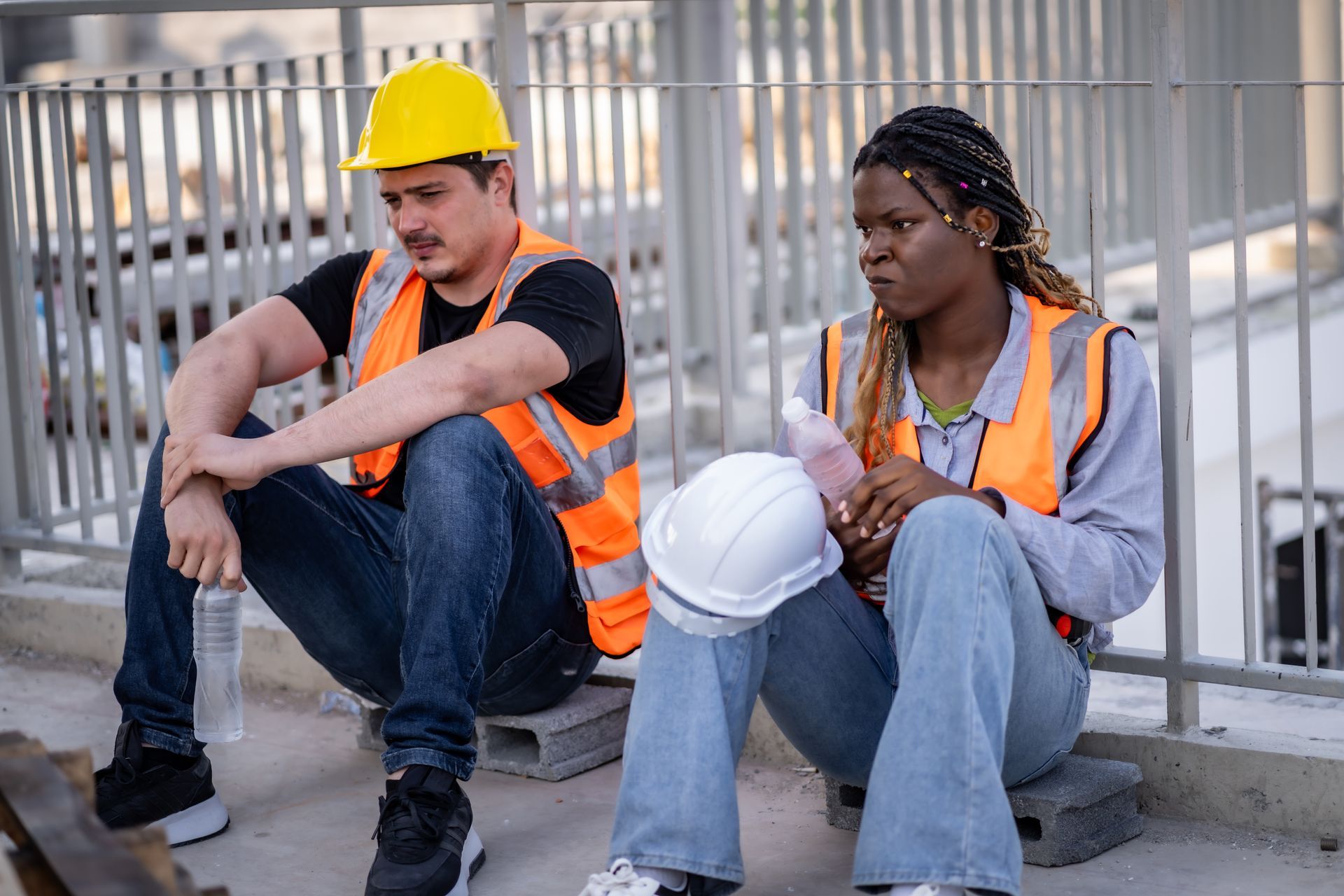
The construction industry has traditionally focused on physical safety, yet the mental health challenges faced by workers have often been neglected.
Top Stressors Among Construction Workers
Financial Stress
Because of the transient, cyclical and fragmented style of work in the construction industry, workers are not confident about when their next paycheck is coming, which makes long-term financial planning difficult, a strain that exists irrespective of economic standing. In other words, consistency and security of compensation have the greatest impact on mental health, not necessarily the amount of the check.
Job demand
Several factors, including the transient nature of work, amount of control, fluctuation in workload, physical strains, burnout and excessive work pressure, affect mental health. The ongoing labor shortage magnifies these factors. Employees want to do the work, but it’s impacting their mental health, causing many to rely on unhealthy coping methods like opioids and alcohol to manage stress and burnout, the authors say.
FACTORS BEYOND WORK
External factors influencing work may encompass, but are not limited to, family and marital stability, the health and well-being of loved ones, global events, news, feelings of isolation, or even the weather. While construction industry professionals can’t effectively address non-work-related factors, depending on the situation, they can often be sympathetic or empathetic without prying.
Construction Inclusion Week
MENTAL HEALTH RESOURCE DIRECTORY
Whether you're assessing your emotional foundations, connecting with immediate support, or seeking professional guidance, these resources work alongside your strengths to keep you strong on and off the job.
These resources are intended for informational and educational purposes only and is not a substitute for professional medical advice, diagnosis, or treatment. The content is designed to encourage awareness and discussion around mental health and well-being in the workplace.
Construction Inclusion Week and its affiliated entities do not provide clinical or therapeutic services and make no representations or warranties regarding the accuracy, applicability, or completeness of the information provided. Always seek the advice of a qualified healthcare provider with any questions you may have regarding a medical or mental health condition.
If you or someone you know is experiencing a mental health crisis or emotional distress, call or text 988 to reach the 988 Suicide & Crisis Lifeline, available 24/7 across all U.S. states and territories. These services are free, confidential, and available in English and Spanish.
Participation in this discussion is voluntary. Individuals are encouraged to share only what they feel comfortable disclosing. Respect for privacy and confidentiality should be maintained at all times. Construction Inclusion Week assumes no liability for any decisions or actions taken based on the information provided in this presentation.
Acknowledgment: Special thanks to Dara Davulcu of Skiles Group for sharing an original resource that helped inform the foundation of this guide. As a general contractor committed to mental health awareness in the construction industry, Skiles Group continues to demonstrate leadership in supporting the well-being of their teams and the broader community.




